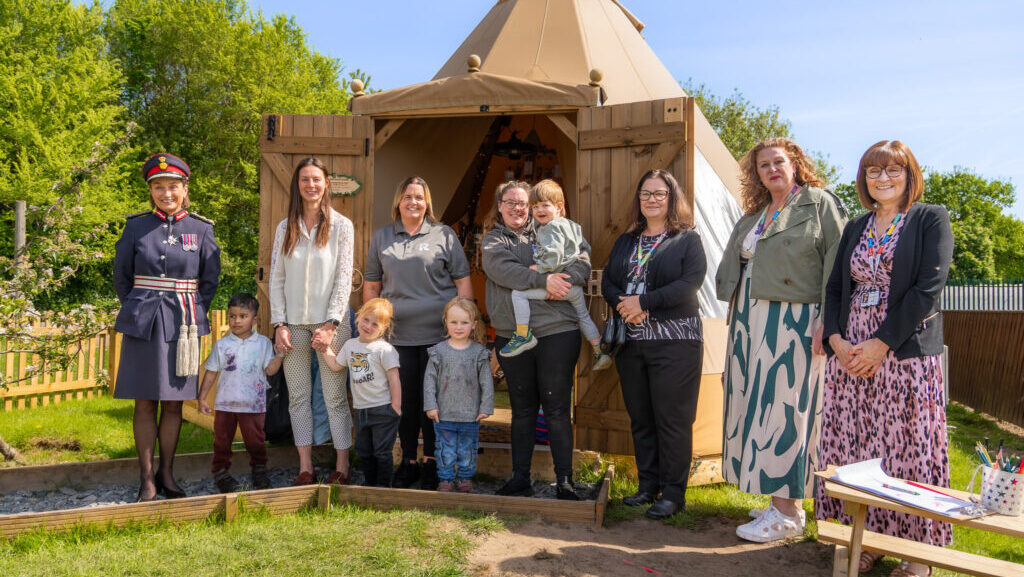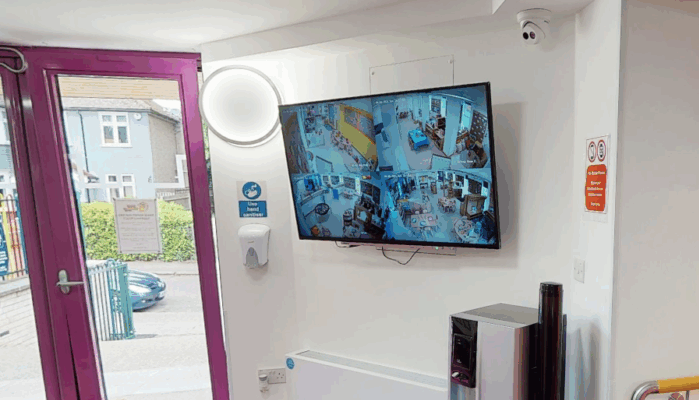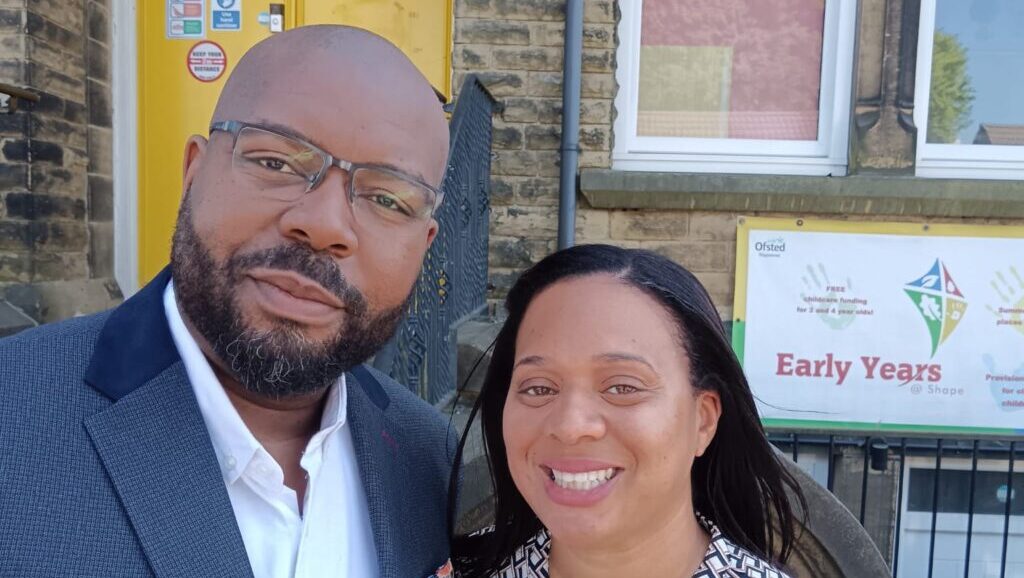How three childcare companies are using the government's capital fund to expand provision ahead of the September roll-out of funded…
Safety first
Deena Billings, European quality director and safeguarding lead at Busy Bees, offers an insight into how the UK’s largest nursery group keeps children and staff safe

What does your role as safeguarding lead for Europe involve?
I ensure safeguarding policies are effectively implemented across the UK, Ireland, and Italy. My role includes safeguarding children, young people, and staff members.
My primary focus is the establishment and embedding of a strong safeguarding culture across all areas of the organisation. I work collaboratively with other departments to ensure that safeguarding children is central to our daily practice. In addition, I act as the primary lead for all safeguarding cases escalated by Designated Safeguarding Leads (DSLs) within individual settings.
I liaise with external bodies like local safeguarding boards, police, and social services, ensure timely and accurate reporting to regulators and inspectors, and prepare safeguarding reports for our safeguarding board.
Recently, I completed a postgraduate qualification at the University of Worcester in Leading Culture Change in Safeguarding. This experience challenged and broadened my thinking, particularly around working with global colleagues and understanding how safeguarding operates within different legal frameworks and cultural contexts. This perspective informs and strengthens my practice in the UK.
How is safeguarding evolving within the sector?
More attention is being paid to children with special educational needs and disabilities (SEND), who may be more vulnerable. We have a dedicated SEND desk to support centre staff in this area, which ensures we are making reasonable adjustments where required in line with the SEND code of practice.
There is also an increasing expectation for early years settings to work closely with external agencies. Safeguarding policies must also align with local safeguarding partnerships and statutory frameworks.
Technology has significantly increased the risks to children and vulnerable adults, and it’s essential that we remain vigilant and informed about new developments. Devices such as AirTags and Smart Glasses present privacy and safeguarding issues. To mitigate these risks, none of our staff are permitted to wear smart watches in the workplace as these devices are equivalent to having a mobile phone in the room and present similar safeguarding concerns. It is also important that we educate our practitioners and parents about digital footprints, image-sharing, inappropriate content, and online risks, even in the early ages.
There is also an increasing focus on integrating staff mental health and wellbeing into our safeguarding policies. We recognise that supporting our employees is essential, not only for their own welfare but also for maintaining a safe and effective environment for children and vulnerable adults. Our trained Mental Health First Aiders across the organisation are equipped to signpost our team to appropriate support services.
Have the reforms to safeguarding in the EYFS from September affected your approach?
When we reviewed the changes, we felt confident that Busy Bees covers this already. However, this has been a good opportunity to refresh our teams’ knowledge, with all staff completing a module about the changes on our Virtual Learning Academy (VLA), giving them confidence in their practice.
We already have robust procedures in safer recruitment and staff training, and a clear whistle blowing process. Paediatric first aid is always a priority for us and topics such as choking prevention and allergy management are reviewed regularly and form part of our training for educators.
Following Covid-19, we focused more on child absence and have a strong procedure in place for our teams to follow. Any child absence is followed up by 10 am or 2pm for a child attending in the afternoons. Attempts to contact are made and escalated where there are any concerns.
What are the challenges when it comes to safeguarding?
Safeguarding in early years settings presents a set of challenges due to the developmental stage of the children we care for and their limited communication abilities.
Young children often lack the ability to recognise or communicate abuse, requiring practitioners to rely on observation and intuition. We need to ensure that staff understand the signs to look for and are confident enough to communicate that.
Safeguarding concerns often involve sensitive conversations with families. Educators build trusting relationships with families and our priority is to support our teams and ensure they are confident in speaking up in the moment, without fear of damaging parent relationships.
Busy Bees has more than 390 nurseries in the UK and Ireland – how do you ensure consistency when it comes to safeguarding?
We have just over 10,000 staff in the UK, so we offer a continual induction and training programme all year round.
We have an online learning academy and carry out face-to-face training with staff and our area directors, using reference to internal procedures as discussion points and case studies in the media as an opportunity to critically examine our own practice. Our regular group discussions across the country ensure that key information and learnings can be shared effectively with centre teams. In addition, our DSLs also complete local authority training on top of Busy Bees safeguarding training.
The centre directors are responsible for their own educators in the centres. We monitor and audit safeguarding practices at all levels and we audit staff knowledge in the settings and ensure that any gaps in knowledge are fully supported. However, it’s important that we also celebrate and recognise the areas in which they are doing well.
We’re currently working in partnership with Worcester University to evaluate our safeguarding practices comprehensively. This collaboration is aimed at identifying any potential gaps and developing strategies to address them. This process forms part of our commitment to continuous improvement, ensuring the highest standards of care for children, young people, and vulnerable adults.
Busy Bees has settings in Europe, Asia, North America and Australasia, as well as in the UK. Is there anything that can be learned from policy and practices in other countries?
In addition to our overall safeguarding board, we’ve established a Global Safeguarding Committee that brings together the DSLs from every country in which we operate.
This group meets quarterly to share best practice, training resources, documents, and case studies from each region. We also work collaboratively to develop solutions to emerging safeguarding challenges, ensuring a consistent, high standard of safeguarding across all our settings.
It’s been really interesting to find out about cultural differences, and to learn from others. Ultimately, we all share the same common goal: to ensure that every single child in our care is safeguarded to the highest standards so that they receive the very best start in life
Latest Features
Mandy Guttadauro, operations director at Bright Little Stars Nurseries, explains how CCTV and ParentCam supports the company’s settings
Charlotte Goddard speaks to nursery owners who have diversified outside their core business. Marcus and Zoe Davy, founders, Shape Nurture…




